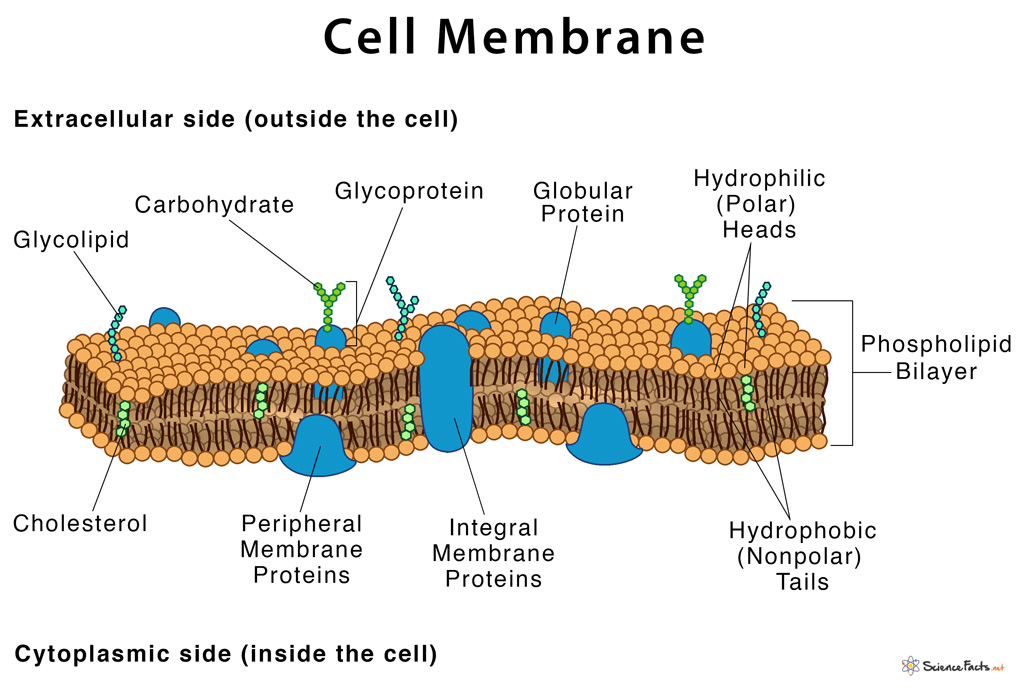What Is Choline? Listening To Your Genes

Table of Contents
What Is Choline?
Choline is an essential nutrient required for optimal human health.
It’s neither a vitamin nor a mineral, but it’s often grouped with the B-vitamin complex because of its similar properties and functions.
It plays a significant role in numerous biological processes, including cell structure, neurotransmitter synthesis, fat transport, and DNA methylation.

Why Do You Need Choline?
Choline is necessary for maintaining the structural integrity and signaling functions of cell membranes, synthesizing the neurotransmitter acetylcholine, and aiding in the process of methylation.
It also plays a crucial role in fat transport and metabolism, contributing to overall liver health.
In pregnant women, choline is particularly important as it aids in brain development and can prevent birth defects.
Evolutionary History of Choline
Choline was first discovered by Adolph Strecker in 1862 when he isolated it from pig and ox bile.
It was officially recognized as an essential nutrient by the Institute of Medicine (now the National Academy of Medicine) in 1998, highlighting its importance in human health and development.
Choline, an essential nutrient, has played a crucial role in the evolution of life due to its involvement in critical biological processes.
Its significance stems from its structural function in cell membranes, its role in neurotransmission, and its participation in methylation processes necessary for DNA synthesis and repair.
Choline in the Origins of Life
The origins of choline can be traced back to primitive life forms.
Phosphatidylcholine, the primary phospholipid in eukaryotic cell membranes, is composed of choline.
The formation of these cell membranes would not have been possible without choline.
Thus, choline had a significant role in the evolution of early life, contributing to the formation of the first cells and eventually complex organisms.
Choline and Nervous System Evolution
The evolutionary development of complex nervous systems in higher organisms was highly dependent on choline.
As a precursor to the neurotransmitter acetylcholine, choline plays a fundamental role in nerve signal transmission.
The development of acetylcholine-based neurotransmission represented a significant evolutionary advancement.
It enables more efficient communication between cells and contributes to the evolution of more complex nervous systems found in higher life forms.
Choline and Human Evolution
In the context of human evolution, choline has been crucial due to its role in brain development and function.
Choline is vital for the synthesis of acetylcholine, a neurotransmitter that plays an important role in memory, mood, muscle control, and other brain and nervous system functions.
The dietary requirement for choline in humans points to the continued importance of this nutrient in our development and overall health.
Moreover, the ability of humans to synthesize choline de novo, albeit insufficiently, points to its evolutionary importance.
The PEMT gene, which facilitates endogenous choline production, has a promoter region that is responsive to estrogen levels, leading to a higher rate of choline synthesis during reproductive years in women.
This adaptation highlights the significance of choline, particularly during pregnancy and lactation when the demand for this nutrient is increased.
Section Summary
Choline’s significance in the evolutionary history of life is profound.
From contributing to the formation of the earliest cell membranes to enabling the development of complex nervous systems, choline’s roles are diverse and essential.
In humans, the continued importance of choline for brain function and during reproductive phases further underscores its role in our evolutionary biology.
Choline the Molecule
Choline, an essential nutrient for human health, has a unique molecular structure that allows it to participate in a variety of critical biological processes.
On a molecular level, choline is a quaternary ammonium compound, meaning it carries a positive charge on the nitrogen atom.
Its chemical formula is C5H14NO+.
Choline in Phospholipids
A critical component of phospholipids, choline forms an integral part of our cell membranes.
Phosphatidylcholine, one of the most prevalent phospholipids in cell membranes, is made up of choline, a glycerol molecule, and two fatty acid chains.
These phospholipids form a lipid bilayer, the foundation of cell membranes, contributing to their structure and function.

The choline “head” of these molecules is hydrophilic (water-attracting), while the fatty acid “tails” are hydrophobic (water-repelling), a characteristic vital for maintaining cell membrane integrity and fluidity.
Choline and Acetylcholine
Choline also plays a crucial role in neurotransmission, acting as a precursor to the neurotransmitter acetylcholine.
This process occurs in neurons, where choline is taken up and combined with an acetyl group donated by the molecule acetyl-CoA, a reaction catalyzed by the enzyme choline acetyltransferase.
The resulting molecule, acetylcholine, is a neurotransmitter essential for muscle control, memory, mood, and other nervous system functions.
Choline as a Methyl Donor
Another significant role of choline at the molecular level is acting as a methyl donor.
Choline can be oxidized into betaine, which then participates in the conversion of the amino acid homocysteine to methionine, donating one of its methyl groups in the process.
This methylation reaction is crucial in a variety of biological processes, including DNA synthesis and repair.
In conclusion, the molecular properties of choline enable its participation in numerous crucial biological roles, from maintaining cell membrane integrity to neurotransmission and methylation processes.
This nutrient, while small and seemingly simple at the molecular level, is incredibly powerful in its biological implications.
Choline Needs: Genetic Influence
Just as with many other nutrients, genetics can play a significant role in determining an individual’s requirement for choline.
Specific genes influence how our bodies metabolize choline and use it for various bodily functions.
Variations, or polymorphisms, in these genes, can impact an individual’s choline needs.
The MTHFR Gene
The MTHFR (Methylenetetrahydrofolate Reductase) gene is one that is particularly influential when it comes to choline metabolism.
This gene is responsible for the production of an enzyme that is crucial for converting homocysteine into methionine, a process in which choline is directly involved.
Variations in this gene can affect this process and thus alter an individual’s choline requirements.
For example, the SNP (Single Nucleotide Polymorphism) variant C677T in the MTHFR gene can decrease enzyme efficiency, leading to an increased need for choline.
This is because choline can serve as an alternative methyl donor when the conversion of homocysteine to methionine is less efficient.
Check your AncestryDNA, 23andMe raw data for the MTHFR variants
The PEMT Gene
The PEMT (Phosphatidylethanolamine N-Methyltransferase) gene also plays a crucial role in choline metabolism.
It encodes an enzyme responsible for synthesizing phosphatidylcholine, a critical component of cell membranes, from phosphatidylethanolamine.
Research has shown that a variant in the PEMT gene, rs12325817, can impact the body’s ability to synthesize choline, particularly in postmenopausal women and men.
Individuals with this variation may have increased choline dietary requirements.
Check your AncestryDNA, 23andMe raw data for the PEMT variants
The BHMT Gene
The BHMT (Betaine-Homocysteine Methyltransferase) gene is another gene of interest.
It encodes an enzyme that uses betaine, a metabolite of choline, to convert homocysteine to methionine.
The SNP rs3733890 in the BHMT gene can reduce the efficiency of this conversion, possibly increasing the need for dietary choline.
Check your AncestryDNA, 23andMe raw data for the BHMT variants
Section Summary
Genetic variations can significantly influence the dietary requirements for choline.
Understanding one’s genetic makeup can provide valuable insights into nutrient needs and guide personalized dietary choices.
However, it’s important to consult with a healthcare provider or a genetic counselor before making any dietary changes based on genetic information.
Choline Needs: Non-Genetic Factors
Several non-genetic factors can influence choline levels.
Age, gender, pregnancy, and lactation status can significantly influence the body’s requirement for choline.
Additionally, other lifestyle factors like alcohol consumption, certain medications, and overall dietary habits can also affect choline levels and requirements.
Symptoms Of Choline Deficiency
Choline deficiency can lead to a number of health issues.
Early signs of deficiency can include fatigue, memory loss, cognitive decline, and nerve damage.
Over time, severe choline deficiency can lead to muscle damage, liver damage, and nonalcoholic fatty liver disease.
Recommendations For Healthy Choline Levels
The Recommended Daily Allowance (RDA) for choline is 550 mg/day for men and 425 mg/day for women.
Pregnant and lactating women have increased needs, with 450 mg/day and 550 mg/day, respectively.
Sources of choline include beef liver, eggs, fish, nuts, beans, and certain vegetables like broccoli and Brussels sprouts.
For individuals unable to meet their choline requirements through diet alone, supplements can be an effective alternative, but should only be taken under the supervision of a healthcare provider.
Wrapping Up
Choline is an essential nutrient integral to numerous biological processes.
While it has been recognized relatively recently compared to other vitamins and minerals, its importance in human health is clear.
Genetic and non-genetic factors can influence choline requirements, and an understanding of these can help guide dietary choices and supplement use.
Reference
- Zeisel SH, da Costa KA. (2009). Choline: an essential nutrient for public health. Nutr Rev. 67(11):615-23. DOI: 10.1111/j.1753-4887.2009.00246.x.
- National Institutes of Health, Office of Dietary Supplements. (2021). Choline Fact Sheet for Health Professionals.
- Fischer, L. M., da Costa, K. A., Kwock, L., Stewart, P. W., Lu, T. S., Stabler, S. P., Allen, R. H., & Zeisel, S. H. (2010). Sex and menopausal status influence human dietary requirements for the nutrient choline. The American Journal of clinical nutrition, 93(5), 1276–1284.
- Institute of Medicine. (1998). Dietary Reference Intakes for Thiamin, Riboflavin, Niacin, Vitamin B6, Folate, Vitamin B12, Pantothenic Acid, Biotin, and Choline. Washington, DC: The National Academies Press.
- Craig, W. J. (2009). Health effects of vegan diets. The American Journal of clinical nutrition, 89(5), 1627S-1633S.
Written By
Share this article












